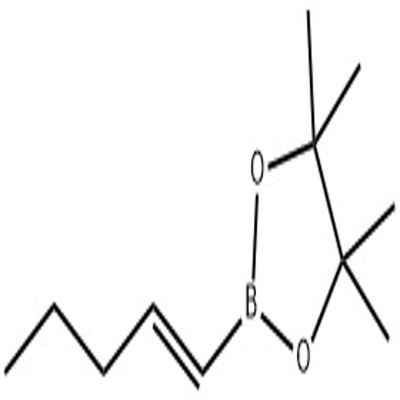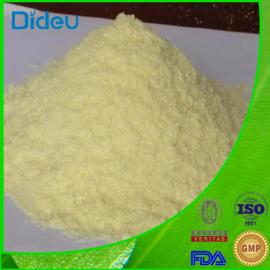-
Categories
-
Pharmaceutical Intermediates
-
Active Pharmaceutical Ingredients
-
Food Additives
- Industrial Coatings
- Agrochemicals
- Dyes and Pigments
- Surfactant
- Flavors and Fragrances
- Chemical Reagents
- Catalyst and Auxiliary
- Natural Products
- Inorganic Chemistry
-
Organic Chemistry
-
Biochemical Engineering
- Analytical Chemistry
- Cosmetic Ingredient
-
Pharmaceutical Intermediates
Promotion
ECHEMI Mall
Wholesale
Weekly Price
Exhibition
News
-
Trade Service
Fosun Pharma, the capital-run company, has launched a new round of "invest, buy and buy" in 2017, targeting the CAR-T cell immunotherapy market for the first time.
and Kite Pharma (NASDAQ: KITE) Co., Ltd. jointly set up a Sino-foreign cooperative venture Fosun Pharma Kate Biotech (China) Co., Ltd. (temporarily, on the evening of January 10, Fosun Pharma announced that through its wholly-owned subsidiary Shanghai Fosun Pharmaceutical Industry Development Co., Ltd. invested no more than US$80 million, named) to develop the cancer T cell immunotherapy market in Chinese mainland, Hong Kong and the Macao Special Administrative Region (excluding Taiwan).
" China's oncology treatment sector has a huge unsuper need, and this partnership with Kite Pharma marks a strategic step forward in Fosun Pharma's platform for T-cell immunotherapy in China, helping us deliver the world's leading cancer treatment for patients in need. "Kite Pharma's cancer immunocellular therapy products have significant synergies with Fosun Pharma's existing products," said Chen Qiyu, chairman of Fosun Pharma. According
, according to Fosun Pharma, this investment will introduce Kite's CAR-T therapeutic product KTE-C19. On January 9th, two days earlier, Kite Pharma announced a partnership with Japan's First Third Co., Ltd. to introduce KTE-C19 products for research and development and commercialization in Japan, with a down payment plus milestone cooperation of more than US$200 million.The new favorite" of immunotherapy
is different from immunotherapy such as DCCIKDC-CIK, which is known for the Weissie event, CAR-T and DC-CIK are the same as cell immunotherapy technology, "but car-T's technical threshold is much higher than DC-CIK." Yu Xuejun, general manager of Shanghai Jikai Gene Technology Co., Ltd., explained to the 21st Century Economic Reporter that the difference is that DC-CIK is only a cell culture technology, while CAR-T also contains genetic engineering technology, involving the construction of genetic engineering vectors and CAR-T cell preparation.
CAR-T is genetically engineered to artificially transform T-cells in tumor patients, produce tumor-specific CAR-T cells in large quantities of in vitro culture, and then re-enter them into the patient's body to attack cancer cells. At present, T-cell immunotherapy cancer treatment is the "new favorite", is located in the treatment of malignant tumors, one of the effective means.
T-cell immunotherapy is not absent from this year's list of major medical innovations or breakthrough technologies. The MIT Review listed it as one of the top 10 breakthrough technologies of 2016, saying the significance of T-cell technology "is not limited to cancer or leukemia, and treating diseases through immune system engineering will be a major direction for future medicine." The Cleveland Clinic believes the breakthrough treatment is expected to be approved by the FDA in 2017 and will trigger a wave of approvals for other blood tumor and lymphoma treatments.
This has also attracted pharmaceutical companies to enter and continue to make breakthroughs, a number of companies in the field have entered the clinical phase II phase, the industry's three leading players are Novarce, Juno and Kite.2016, CAR-T giant Juno continued to suffer from clinical trial deaths, finally announced at the end of the year flagship product JCAR017 to obtain the FDA's breakthrough drug certification for difficult, recurring advanced non-Fihochkin lymphoma.
The case of a U.S. brain cancer patient recovering from CAR-T therapy has moved the industry to a boil, the first time in the field of cancer immunotherapy, meaning that immunotherapy can be extended to solid tumors.
Kite Pharma is also one of the leading cancer T cell therapy companies, headquartered in Santa Monica, California, USA, dedicated to the development of new cancer immunotherapy products and focused on auto-transplant cell therapy (eACTTM) to repair the immune system's ability to recognize and eliminate tumors.
Kite's main product, KTE-C19, is a research-based inlay antigen-subject (CAR) T-cell therapy product for the treatment of recurring B-cell lymphoma and leukemia, which is still in the clinical stage of development. The product is also the first product to be introduced in this cooperation.
December 2016, Kite Pharma announced that it had filed a biological product licensing application with the FDA for a rolling application for the treatment of KTE-C19 as a refractic invasive B-cell NHL patient. The joint venture with Fosun Pharma may continue to introduce subsequent products under Kite Pharma's research, including cell therapy products such as KITE-439 and KITE-718.new area of strategic layout
Fosun Pharma and Kite Pharma will each have a 50% stake and will be registered in Shanghai. Under the terms of the agreement, Fosun Pharma is proposed to contribute $20 million in cash and Kite Pharma will pay $20 million for exclusive access to its products and know-how. Fosun Pharma will pay an additional $40 million to the joint venture for related patent and technology costs, and the joint venture will pay $35 million to Kite Pharma and a sales credit for KTE-C19 products based on research and development progress and market conditions.
" Fosun Pharmaceutical layout of a wide range of areas, mergers and acquisitions and investment is basically running for the industry leader. Tang Lei, executive partner of Gautejia Investment Group, told 21st Century Economics, "It is not surprising that immunotherapy is the development direction of cancer treatment, and Kite, as a leading company in this field, is the best partner of Fosun, both in terms of technical maturity and company operations." A
rie Belldegrun, founder and president of Kite Pharma, has been working on surgical oncology and immunotherapy for many years and has founded biotech companies such as Agensys and Cougar Biotechnology. "The establishment of the joint venture has accelerated Kite Pharma's entry into the Chinese market and helped us achieve our important goal of global impact," Arie said.
For Fosun Pharma's accelerating overseas investment, mergers and acquisitions, Chen Qiyu in an interview with the 21st Century Economic Report, said: "To play the advantages of the Chinese market, focus on integration and synergy with Fosun Pharma, not isolated mergers and acquisitions, to find in line with China's power to graft global resources investment concept, pay attention to pharmaceutical products in the global industrial market and China's industrial chain integration capacity, in more real combat to complete the most suitable for Fosun Pharma mergers and acquisitions." According
industry insider, the partnership will introduce "tumor immunocellular therapy products and Fosun Health business synergy." KTE-C19 will be able to form a more complete line of lymphoma treatment products with Fosun Pharma's mono-resistant products, and can also accelerate the domestic application and market of such products. At
, there are no other cell therapy technologies or products approved for clinical application in China except hematopoietic stem cells, and the cell therapy industry has been criticized for lagging regulation and lack of industry standards. On December 16, 2016, the CFDA Review Center released the Technical Guidelines for the Research and Evaluation of Cell Products (Draft for Comments), which will be registered and regulated in the future in accordance with the drug review process. This is also considered a new opportunity for the cell therapy industry after the Wei Tracy event.
has not been approved, but domestic companies in the name of research to carry out clinical applications, for domestic counterparts, this cooperation has increased competitive pressure. Tang Lei believes, "If there are big Mac companies in the industry, other companies must have several times the advantages of the first-time products to succeed, or must have their own characteristics." In the market, but also to consider the marketing system and market resources, but also its valuation and financing will have more impact. (21st Century Economic Report)







